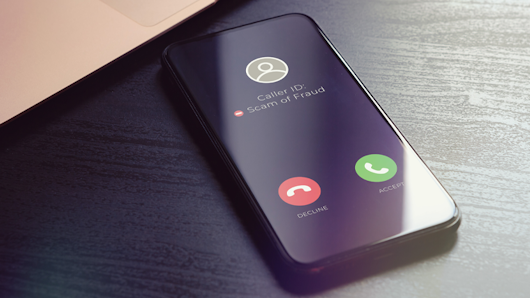Two Auckland women tell us their story on how they fell victim to investment scams via social media.
Swindled out of 100k

In June last year, Auckland-based Phoebe*, 31, met Emily on Tinder. They messaged each other a few times, and their conversation eventually transferred to WhatsApp, where they started to get to know each other.
They chatted about their interests, friends and family. And this was when Phoebe brought up her interest in investing. Having had some experience with investing through the popular New Zealand app Sharesies, she was open to investing again.
That’s when Emily suggested cryptocurrency.
“[Emily told me] ‘I wouldn’t recommend stocks; I’d recommend crypto instead’,” Phoebe told Consumer NZ.
“I mentioned that I didn’t know anything about it and that’s when [she] was like ‘I can teach you if you’re willing to learn’.”
Phoebe was intrigued and excited that Emily seemed to know so much about crypto.
“I was so keen to learn about it ... you hear people talking about crypto all the time. My brother’s into it, people at work, everybody talks about it, and I was kinda always sitting there quite clueless and didn’t know how to dabble in what everybody seems to be really into. It’s like a trend and you wanna be part of it.”
Phoebe decided to transfer her life’s savings of $48,000 into the digital crypto ‘wallet’ that Emily recommended. Phoebe saw a profit appear in her online wallet almost immediately.
However, before she could withdraw the money, she was prompted to pay a withdrawal tax of 25%. She couldn’t afford this so she borrowed the money from her mum and took out a loan with a non-bank lender. Phoebe ended up putting almost $100k into her online account.
She waited and waited, but the money didn’t appear in her bank account.
She tried to log back into the crypto platform to check her wallet but couldn’t get in, which rang a few alarm bells.
She messaged the platform’s customer service team on WhatsApp about being locked out of her account and was told she needed to pay one more extra charge to release the money.
That’s when she realised it had all been a scam – and that Emily wasn’t a real person.
“[With Tinder], it feels like you’re meeting real people who aren’t going to scam you for some reason, even though it’s all online,” Phoebe told Consumer.
She was devastated but also ashamed and embarrassed.
“I had no idea what to do! I kinda hid it more than anything. This is probably the first time I’ve ever spoken out about it to anybody.
“My mum kinda knows to some extent, and my brother … because it got to a point where I was just like ‘I don’t know what’s happening with my money any more,’ like I’ve basically lost everything.
“I think about it all the time obviously, but it’s almost like ‘did it actually happen’, like to me?”
In the first half of 2022, New Zealanders lost more than $19.2 million to scams, according to Netsafe. That’s nearly double what was reported over the same period last year, when $10.5m was lost (1 January to 30 June).
Auckland-based women aged between 22 and 40 reported the most, though this doesn’t mean they’re necessarily the most affected because many people do not report what happened to them. The acting manager of incident response at CERT NZ, Jordan Heersping, makes it clear that scammers are targeting and successfully scamming all demographics across Aotearoa.
The top scam types are investment, romance and trust scams, along with identity fraud, according to Netsafe and the Financial Markets Authority (FMA).
While elements of these scam types intermingle, the overarching tactics of scammers are similar and there are common warning signs:
they contact you out of the blue;
they offer high returns with little risk;
the opportunity is for a ‘select few’ or is for a ‘limited time;’
they're not registered with the Financial Service Providers Register (FSPR);
they’re based overseas; and
the information that is disclosed is limited (for example, they are secretive about location, boss and bank account).
The Grinch who stole Christmas

Investing wasn’t new to Georgia* from Auckland, who had some experience through Sharesies. When her friend posted a video of himself endorsing an investment opportunity to his Instagram story, she was interested in giving it a go.
Last Christmas Eve, Georgia got in touch with a financial adviser who her friend had recommended in his video. The adviser’s name was Rachel. Feeling a little uncertain, Georgia searched Rachel online and confirmed her job title.
Georgia felt reassured and the two women discussed the investment. Following Rachel's advice, Georgia invested more than $3k into a crypto digital ‘wallet’, where her money quickly grew to more than $18k.
That’s when Rachel asked Georgia to make a video of herself supporting the investment process, in order to reassure future clients. Georgia was happy to oblige.
“In my head I’ve just made like 15 grand, so I was like, ‘of course I’ll send you a video!’ I don’t know why I didn’t click at that stage.”
After Georgia forwarded the video, Rachel asked for more money for a broker fee to cover her time and expertise. Georgia had to borrow $1k from a friend to afford it.
When Georgia went to withdraw her money from the account, she was told she needed to pay a withdrawal tax. Georgia couldn't afford this, and so arranged to pay Rachel back once she had received her profits. She was so thankful that Rachel agreed to this, that she happily shared her email address, phone number and bank account number with Rachel so the withdrawal could be received.
“At any point I should have clicked on, but I think I was just so invested,” Georgia told us.
“I wanted the money back, and so I just wanted to give her everything she needed. I just thought, I’ve done research, but not a huge amount so didn’t know the details and figured this must just be the process of how it happens.”
Not long after, Georgia was locked out of her Instagram, Facebook and bank account. While she was able to secure her bank account via a phone call, it had been drained to $6000 in debit – even though she didn’t have an overdraft.
She never regained access to her social media accounts.
Georgia’s hacked Instagram account then posted the video she recorded endorsing Rachel’s scheme, managing to scam many of her friends the same way she had been. That's when she realised the same thing had happened to her friend who posted the initial video.
Unfortunately, some of her friends fell for it just as she had, and between them they ended up losing more than $100,000.
“It’s actually terrifying,” Georgia said. “It’s not like I’ve actually [just] been scammed, I’ve also had my identity stolen … It’s been the worst experience.”
After reporting the incident to the Police, Georgia was informed that there was nothing that could be done as the scammer was based overseas.
The experience has left her with a bad credit rating, as well as debt. She lost almost $20k.
“You see people get scammed online and you kinda think that sucks, but like … I’ve been put in so much debt, so much stress. Eight months later I’m still dealing with the consequences of it ... I would not wish this upon anyone, I just think it is so cruel.”
Her advice to others: “Just don’t invest unless you know what you’re doing yourself. People always say do your research and I thought I’d done mine, but obviously not enough.”
Too embarrassed to talk
Across scam cases, there is a lot of shame and embarrassment felt by the victims. This typically indirectly aids scammers because people are too ashamed to talk about being scammed, and so fewer reports are made.
Phoebe, who lost almost $100,000, said people don’t realise how clever these scammers are.
“If people did fall for a scam, reassure them that they’re not dumb for falling for a scam like this. These people are really manipulative … they know what they’re doing … they know how to take advantage of you. Obviously, I didn’t think I’d ever fall for a scam like that!”
Ngā Tāngata Microfinance is a charitable trust working to help New Zealanders across Aotearoa living in hardship and struggling with unmanageable debt. It offers small interest-free loans, alongside financial mentoring support. So far it has issued more than 1000 loans, totalling more than $2.5m.
Chief Executive Natalie Vincent said some of those it has helped have been the victims of scams. And often these scams spread through communities, as people are unaware of their insidious nature and end up passing it on to their friends and whānau.
This can make it difficult to report these scams because those affected don’t want their loved ones to get into trouble, she said. This has been particularly evident in Pasifika communities, with scams ripping through Facebook groups and churches.
“We’ve found that victims of scams feel a lot of shame and don’t often want to talk about it,” Natalie shared. “In the worst cases, we know people who have hidden the issue away for a long time, until it has become unbearable to manage, and the person or whānau reaches breaking point.”
She wants more done to protect people who may be vulnerable to this predatory behaviour.
Natalie encourages people to ask more questions, seek professional advice, turn to friends and family, and only invest money they can afford to lose if things don’t go as planned.
At the end of the day, she wants to make it clear that if you are scammed, don’t feel ashamed and don’t put off seeking help, as more can be done sooner rather than later.
FMA, CERT NZ and Netsafe all run regular awareness campaigns to educate people on the increasing importance of cybersecurity. All three organisations post specific warnings about the latest scams on their websites.
While 78% of New Zealanders report hearing about scams in their day-to-day lives, CERT NZ’s 2022 Cyber Security Attitudes and Motivations report points out that people continue to underestimate the potential risk of being scammed.
How to protect yourself from scammers
The FMA stresses to be wary of social media posts and messages because these sources aren’t substitutes for professional financial advice. If you find information online that you feel relates to your financial situation or interests, take the content to a financial adviser for their input.
CERT NZ recommends the following to protect yourself from scams:
Use long, strong and unique passwords (don't use the same password for more than one account, and don't include any personal information).
Use two-factor authentication to ensure another layer of security on top of your password.
Do not share your personal information through social media, email or over the phone with people you don’t know (set your privacy settings to ‘private’ or ‘friends only’).
Be wary of unusual emails and text messages, don’t click any unknown links, and don’t follow instructions which ask you to act fast to seize the opportunity.
Be wary of advice on schemes which advertise little risk and high reward. If something is too good to be true, it probably is.
If someone you have met online asks for money or gives investment tips, consult with people you know and trust, and thoroughly investigate the investment opportunity.
After being scammed, both Phoebe and Georgia were unsure of what to do.
“I assumed nobody else would help me because at the end of the day it was me who fell for it,” Phoebe said.
Now both women want more awareness about the prevalence of scams, as well as how to deal with the aftermath. Their concern is that there’s too much victim blaming of those who fall for scams.
They believe advice such as ‘do your own research’ isn’t enough. Both women did research when presented with the cryptocurrency opportunities, and this didn’t protect them. Georgia had even googled the name of Rachel, the financial adviser, and found legitimate results. She didn’t realise the scammer had stolen a real financial adviser’s identity.
In cases like this, where you willingly put up your own money, banks won’t reimburse you most of the time. And the Police can’t do much, given the scammers are usually based overseas.
Phoebe wants banks and other lenders to have tighter processes for identifying scams. She had told her non-bank lender exactly what she needed the loan for: to pay a withdrawal fee for cryptocurrency.
“I was like ‘it’s to pay crypto tax’ but then that should have really raised a red flag with them.”
*names changed for privacy
If you suspect you’re being scammed
Netsafe
0508 NETSAFE (638 723)
Department of Internal Affairs
Victim Support: 0800 201 415
Forward scam emails to [email protected]
Forward scam TXTs to 7726 (SPAM)
Police
105.police.govt.nz
Contact your bank
Call the number on your debit/credit card

Scams and how to avoid them
Wondering if that email or phone call is a scam? Learn about the most common types of scams and how to protect yourself.


